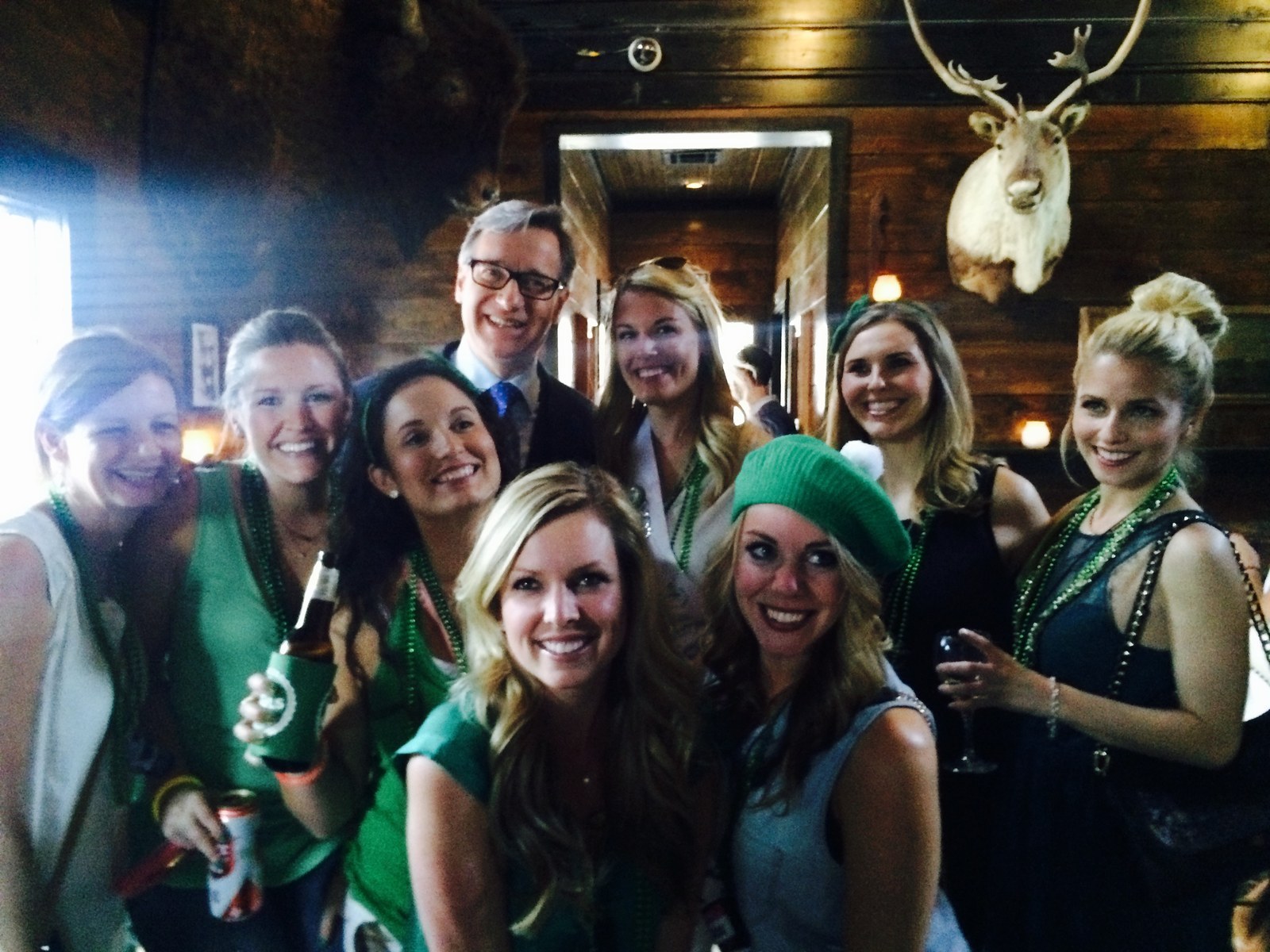
There was a moment in the spring of 2011 when director Paul Feig realized his entire career rested on a single screening in a packed and unruly Austin theater. He was about to debut his first feature directorial effort in five years, after his last movie, the 2006 kids comedy Unaccompanied Minors, had been such a disastrous bomb that it had delivered what Feig believed to be an irreparable blow to his professional life.
"I was firmly in movie jail," he told BuzzFeed News earlier this spring, not far from that fateful theater. "I'd really hit a point where I was like, well, that's it, my movie career's over."
But then producer Judd Apatow, Feig's friend and collaborator on the beloved 1999–2000 cult TV series Freaks and Geeks, called with a rare second chance, a female-driven comedy that he wanted Feig to direct. That film was Bridesmaids, and what had Feig so anxious was its semisecret midnight screening at the 2011 SXSW Film Festival, the first time the movie had been shown in public.
"Everything rode on it," Feig recalled. "Because if I had another movie bomb, then I would be not only in movie jail, I'd be in movie dungeon."

The director had already watched Bridesmaids kill at several private rough-cut test screenings, so he knew the movie worked. What he didn't know was whether the rowdy crowd of mostly male film geeks packed into the 1,100-seat movie theater would appreciate his emotionally nuanced, character-driven wedding comedy starring Kristen Wiig, Maya Rudolph, Rose Byrne, and Melissa McCarthy, none of whom had headlined a studio feature before. "I remember getting in there and looking around, going, like, Oh, there's not very many women in here," Feig said with his typical deep, nervous chortle. "I had at least two martinis. I cannot face a screening with total sobriety."
Four years later, Feig was back in Austin, crouched in a hip bar constructed from giant steel containers, a martini in hand, anxiously awaiting the 2015 SXSW debut of another studio comedy he directed starring Melissa McCarthy. Just about everything else about his life, however, had transformed drastically.
At 52, Feig is not only out of movie jail, he is quite simply one of the most in-demand comedy directors working in Hollywood today. Bridesmaids, of course, became the sleeper hit of of the year, and his follow-up, the buddy cop comedy The Heat starring McCarthy and Sandra Bullock, was the highest-grossing comedy of 2013. On Friday, Feig's secret agent comedy Spy, which he also wrote, is poised to give him his third blockbuster comedy in a row. And in two weeks, Feig will start production on one of next summer's buzziest movies, the all-female reboot of Ghostbusters, starring McCarthy, Wiig, and current standout Saturday Night Live cast members Leslie Jones and Kate McKinnon.
It's about as dramatic a career turnaround as possible for a Hollywood filmmaker, but escaping his five-year stint in movie jail was far from the only time Feig's found himself standing at the precipice of a professional chasm. It's happened, in truth, with some frequency. Usually, he's found a way to navigate past it; a few times, however, he's tumbled down so far that he wasn't sure if he'd ever find his way back up. Facing the abyss of failure so often has not only informed Feig's approach to comedy and storytelling, it's why, with the success Spy all but certain, the only thing Feig is sure about is that his hot streak could end tomorrow.
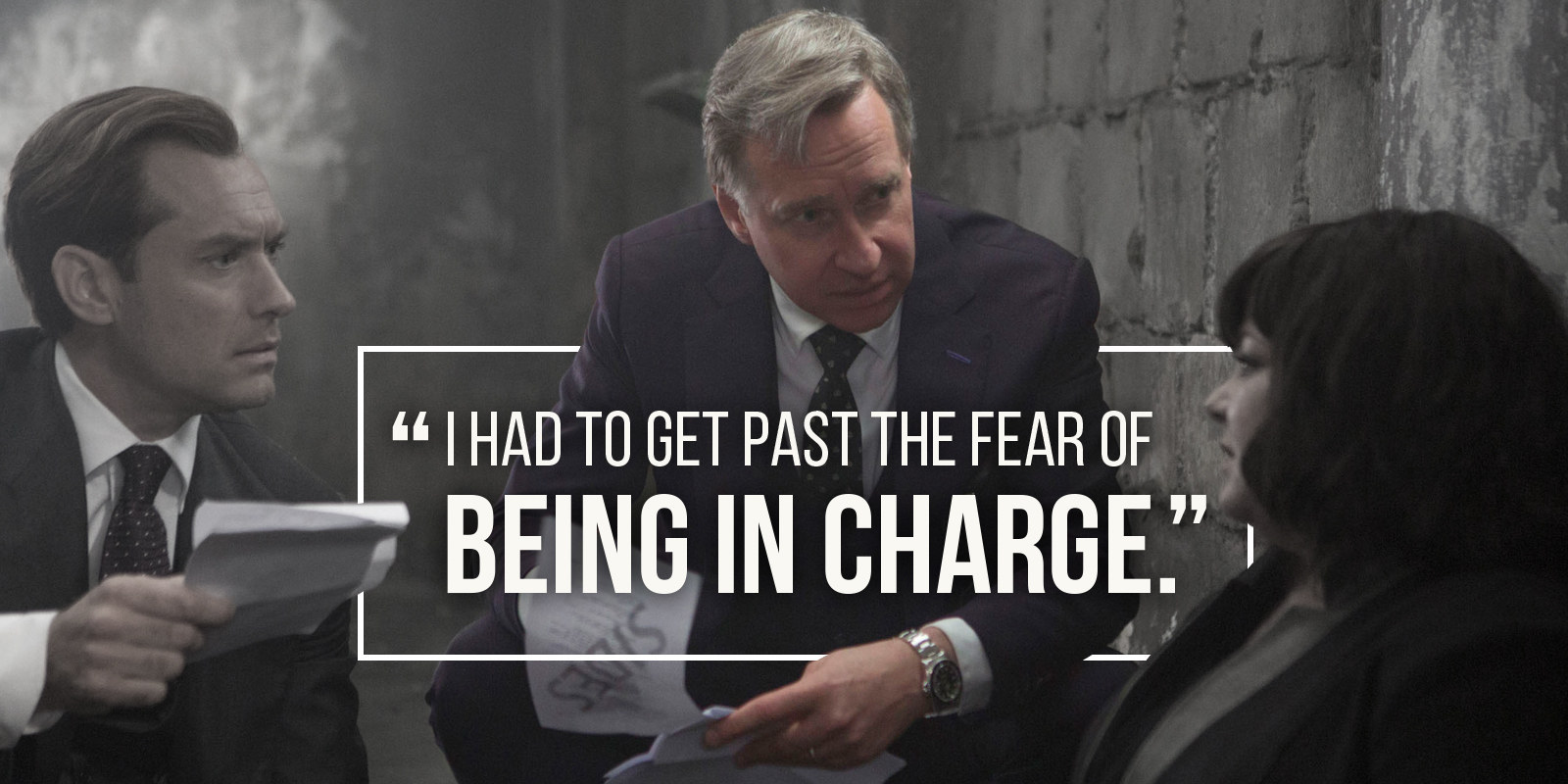
Like many filmmakers of his generation, Feig spent his childhood making Super 8 movies with his neighborhood buddies in a suburb of Detroit. He counts Raiders of the Lost Ark and Woody Allen's Take the Money and Run as touchstones that sparked his determination to move to Los Angeles and start a career as a filmmaker. But when he got into USC's film school, he enrolled as an actor, not a director. "My justification was, If I know how movies are made, I'll be a better actor," he said, wincing a bit at his own youthful pretentiousness. "But I was a chicken. I was the last kid to walk. I was the last kid to learn how to ride a bike. I've just always been like a late bloomer."
Even when Feig landed a rare opportunity to direct one of the two movies during the school year — after his friend who was going to do it dropped out — he found the sudden rush of responsibility to be utterly paralyzing. "I would have these nightmares about, like, I'm going to be on set, and everybody's going to be looking at me," he remembered. "And then I'll have to yell at someone or have to fire somebody or be mean to somebody. That was my concept of being in charge. You have to be tough and yelling and screaming. I just crumbled."
Instead, Feig applied his creative energy to dreaming up an ingenious way of backing out of the job. "I rewrote the script and made it, like, pro-suicide," he said with that same signature, self-deprecating laugh. "It was about these two girls who have a disease and are trying to get through it. And then I made it where they end up killing themselves at the end." His strategy worked. "I remember sitting with the head of the film school, and he's reading and going, 'You can't do something where you're basically saying, It's good to kill yourself!' I was like, 'Well, I guess I can't do the movie, then.'"
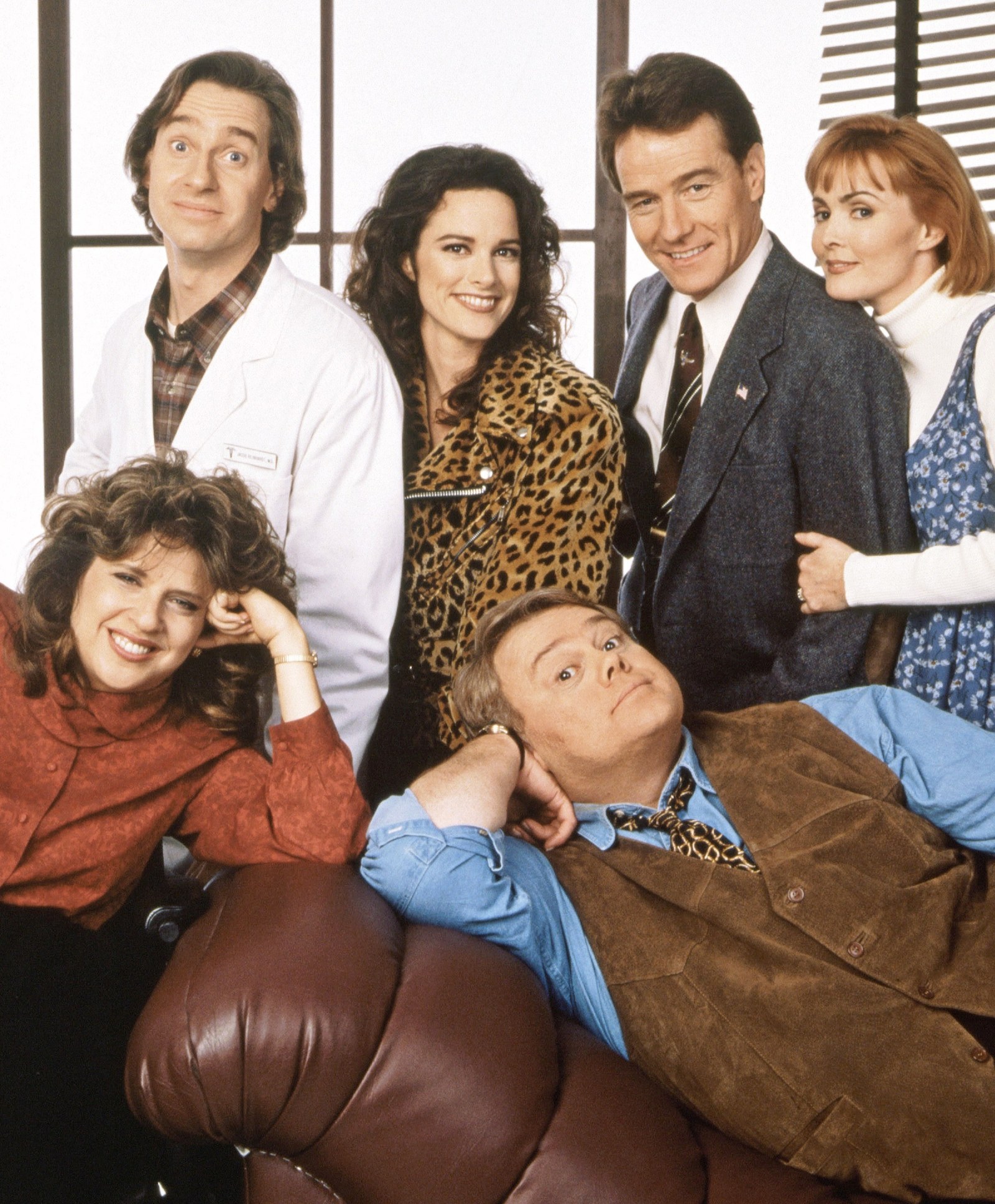
Feig continued to focus on developing his acting career, and found some real success not too long after graduating: He had supporting roles on TV series that rarely made it past their first seasons, like the 1988 CBS adaptation of Dirty Dancing, the 1992 Tom Arnold vehicle The Jackie Thomas Show, and the 1996 Louie Anderson vehicle The Louie Show. He thought he finally landed a big break as a series regular on a genuine hit, Sabrina, the Teenage Witch, which launched in 1996. Feig played Sabrina's science teacher, Mr. Pool, and the job promised enough financial security that he decided to finally throw caution to the wind and direct, write, and star in his first feature film.
With a tiny self-financed budget of $35,000 that cleaned out his savings, Feig wisely kept the film, titled Life Sold Separately, simple. He wrote a story about four people who meet up in an empty field over the course of a single day, and then he storyboarded every shot to streamline the production, which only had six days to shoot. On the first day, things went more or less according to plan. The second day? "We just hit the rocks," Feig said. "We were halfway through the day, and we were way behind. I remember thinking, I'm going to have a nervous breakdown. I just want to quit right now — take my stuff and just walk away."
This time, however, walking away meant something far more existential. "I walked off on the other side of this field," Feig continued. "And I'm just standing there, trying not to hyperventilate. I remember thinking, This is it. If you pull out of this, you will never direct. You are opening up a world in which you can just stop doing something if it is tough." (It’s reminiscent of Annie, Wiig's character in Bridesmaids, who let the early failure of her bakery cripple her self-worth, leaving her life stranded in neutral.)
Feig collected his thoughts, came back to his crew, and scrapped his storyboards in favor of shooting the scene at hand in a single take. "Not the most cinematic thing in the world, but by doing it, we were right back on schedule," he said. "I had to get past the fear of being in charge."
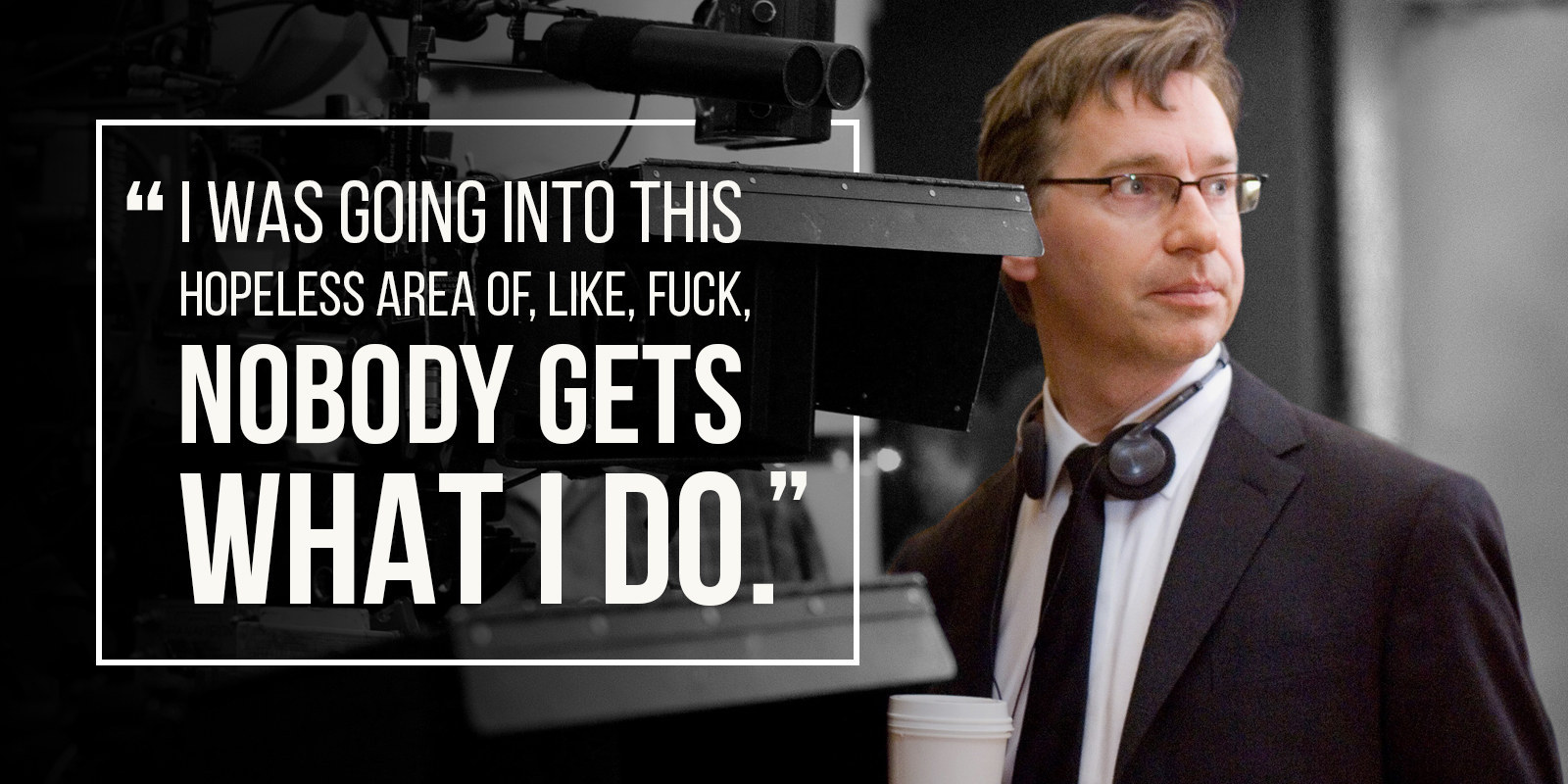
On the heels of that personal triumph, however, Feig confronted a cascade of overlapping misfortunes and indignities that almost pushed him out of Hollywood for good. A massive technical snafu with Life Sold Separately’s negative meant Feig could only screen the movie on a grainy VHS tape; perhaps as a result, he couldn't get any film festivals to accept it. Meanwhile, he learned he'd been written out of Sabrina the Teenage Witch after the first season. And although he was flat broke, he had also started to sour on acting as a viable long-term career.
"I just realized, I don't think I can make any money doing this," he remembered. "I had very limited skills as an actor. I couldn't take having no control." Feig knew he was truly finished with acting soon after finishing Life Sold Separately, when he auditioned for the lead role in executive producer John Landis' TV adaptation of Honey, I Shrunk the Kids. "John Landis has always been one of my favorite comedy directors," he said. "I come in, and he goes, 'Oh, I see you just directed a movie!' And I had this, like, amazing 15 minutes with John Landis where we're talking about comedy directing … just, like, two guys in charge. And then [there was] that awkward moment where he goes, like, 'So, are you going to read for us?' My mind just snapped. I walked out of there going, I can't do this, I can't do this."
With no distribution in sight for Life Sold Separately, Feig went on an often lonely and unrewarding college tour with the film, unsure if, when it was over, he would ever work in the industry again. Acting had become untenable, and directing felt like a fruitless dead-end. But rather than give into his despair, Feig chose to channel his feelings of frustration, isolation, and defeat into what became one of the most indelible works of television of the last 30 years. "It was during that [tour] where I was like, Well, I've got to create something," he said. "Maybe I'll just go back to writing."
The result was the pilot script for Freaks and Geeks, which Feig sent to Judd Apatow, a friend from his early days as a stand-up comedian. Apatow had just landed a deal with DreamWorks Television off the strength of his writing on HBO's The Larry Sanders Show. And he loved Feig’s script. DreamWorks bought it, and overnight, Feig went from unemployed actor and frustrated director to the creator and executive producer of his first TV series.
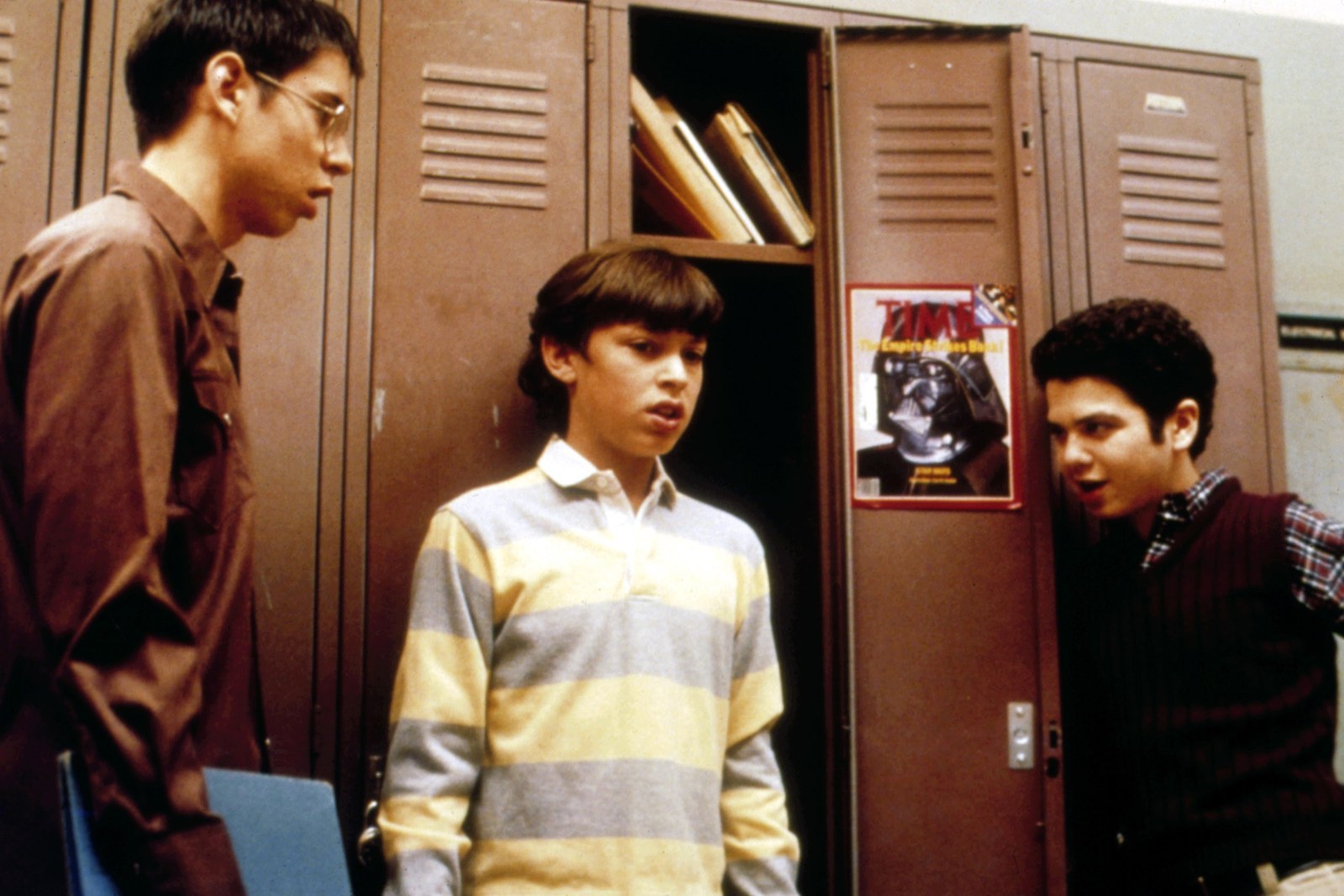
Feig's time on Freaks and Geeks was grueling, formative, and, in many ways, idyllic. He poured himself into every aspect of the show — an hour-long dramedy about two sets of high school outcasts in a Detroit suburb in the early ’80s — and when he got a chance to direct an episode, he finally found the creative satisfaction that had been eluding him for so many years. "I'm really, really proud of that episode, because that, more than Life Sold Separately, was really my kind of coming-out as a director," he said. The episode also, unfortunately, served as Freaks and Geeks' series finale. Although the show won universal acclaim and a passionate cult audience, it was getting creamed in the ratings. NBC canceled it before Feig's episode had aired, burning it off instead during the summer.
Understandably, he was gutted, and while the show had been the best thing to ever happen to his career up to that point, it also didn't exactly make him a hot commodity. "A critically acclaimed comedy that doesn't do well with an audience means nothing, I hate to say, as much as I love having critical acclaim," Feig said with a smile. "I was going into this hopeless area of, like, fuck, nobody gets what I do. Not that I'm so smart. But it was just like, I'm not in sync, because my stuff was all really behavioral." Instead, Feig watched broad, high concept, weird-kid-in-high-school shows Malcolm in the Middle and That '70s Show become that era's big ratings hits. "You know, very funny, but the polar opposite of what I was trying to do with our show."
Feig instead tried his hand at the polar opposite of comedy: adapting Anne Holm's young adult novel I Am David, about a 12-year-old who escapes a Bulgarian labor camp after World War II, as his next feature directorial effort. One of the first films bankrolled by the independent family movie production company Walden Media, the movie earned, at best, mixed reviews, and barely made a blip at the box office.
It was Feig's next film, however, that locked him up in movie jail. Unaccompanied Minors, based on a This American Life story about children of divorce traveling alone during the holidays who are snowed in at the airport, was supposed to be Warner Bros.' big family Christmas movie for 2006. Although the creative process had been bumpy — including an initial screening of a director's cut for the studio that Feig called "disastrous" — the director said that his final cut screened incredibly well in its first test screening with a general audience. "The head of the studio came up to me and said, 'You've done your job. You delivered us a great movie. Now it's up to us to promote it. And if we can't make this a hit, then it's our failure,'" said Feig.
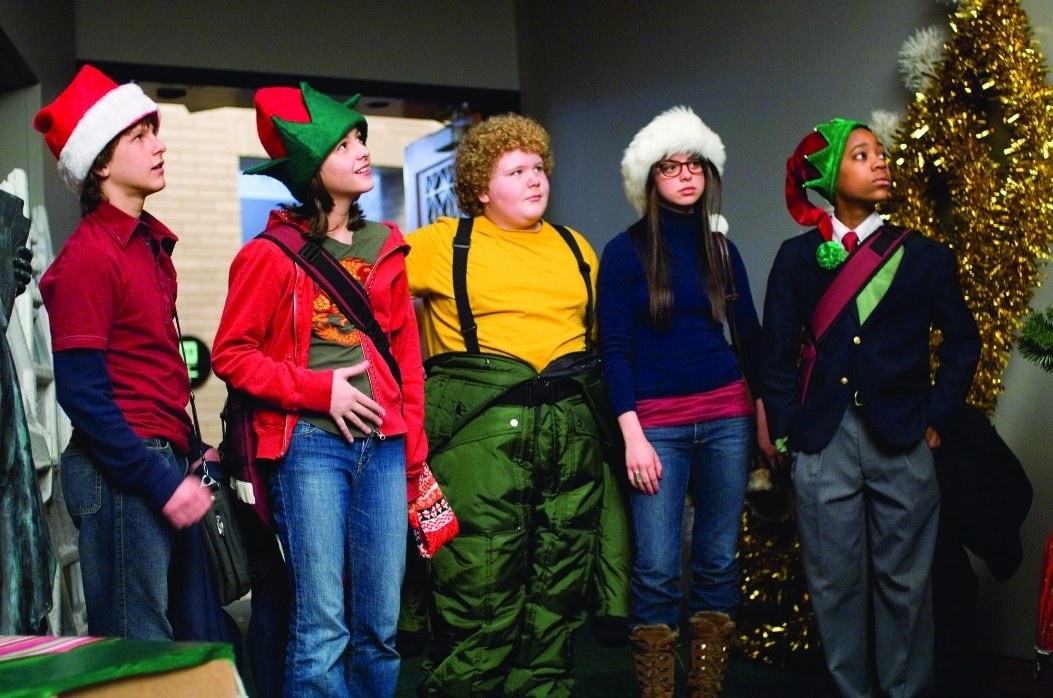
The film was not a hit. It opened in seventh place, ultimately grossing just $16.7 million domestically. Feig knew full well what that meant for his standing in Hollywood. "The first time out of the gate, if you make a movie for the studio and it doesn't make them a profit, they have zero — zero — motivation to hire you again," he said. And yet, Feig also recalled fielding sympathy calls from studio execs. "Like, 'We're so sorry. We didn't promote this enough, blah blah blah,'" he said. "And you're like, Oh good, I'm off the hook!"
But then a noticeable chill began to descend on Feig's career. He had another film in development at Warner Bros., and had been fighting over a casting decision with its high-powered producer. Before Unaccompanied Minors opened, the studio's execs backed Feig. After, their full-throated support downshifted into feeble dithering. "'Well, we're not sure. We can't really go up against him,'" Feig remembered them saying. "I had a rewrite due, and I turned it in, and then it took a long time for somebody to respond to it. They don't even call up and say, 'We're not doing it.' It was like, 'We're going to wait to see what happens with this.'" What happened was absolutely nothing, until the film went away entirely.
Feig's dire circumstances really sunk in, however, when he was in contention to direct the first feature adaptation of Jeff Kinney's wildly popular Diary of a Wimpy Kid books. "I'd have these amazing meetings with all the studio people," Feig said. "It was my movie. At the last minute, my agent said, 'Well, the head of the studio won't approve you for it.' I was just like, If I can't get a kids movie, it's over. Fuck, I'm in movie jail."
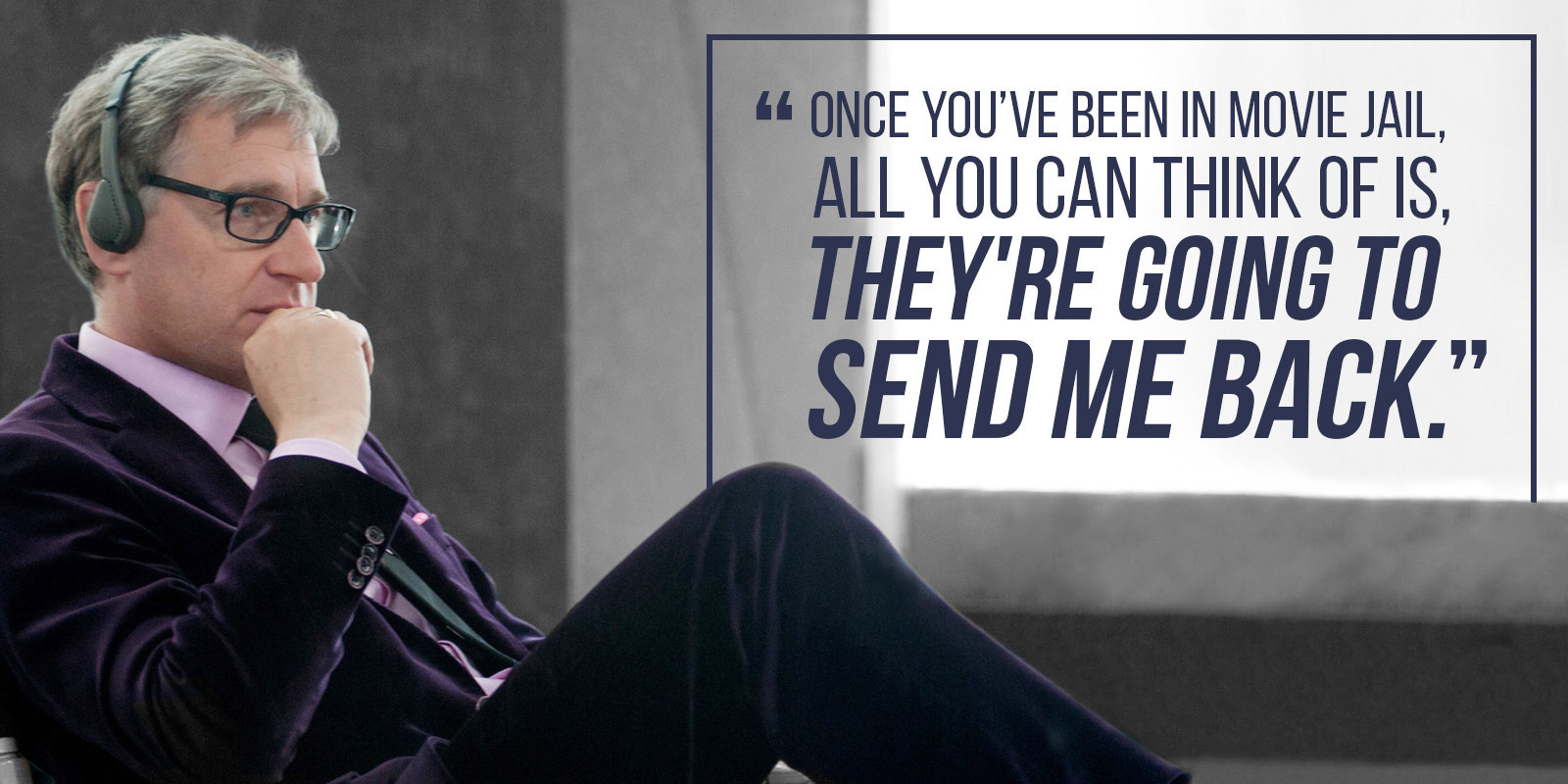
Shut out from a career in movies, Feig joined the ranks of journeymen TV directors who hop from show to show, helming individual episodes. And he built a handsome career of it, working on some of the most beloved series of the last decade, including Arrested Development, 30 Rock, Mad Men, Weeds, Nurse Jackie, Parks and Recreation, and The Office. Feig's accomplishment with Freaks and Geeks was actually paying off; he was often invited to be a part of the writing process, and given wider latitude on set. These shows' more grounded focus on behavioral humor also better fit Feig's natural comedic instincts. For The Office's fifth season, Feig was even invited to join the show full-time as a co–executive producer, helping to oversee the directing on all of the episodes, and joining the show's writer's room.
And then he got a rude awakening for how fleeting a person's comedic relevance can be.
"Some of the greatest TV writers of the time [were] in that room, and they're all in their twenties and thirties," Feig said. "I was in my forties at that point. When you're a comedy person, you have your go-to style of pitches you know always kill in the room. So I pitch out a joke, literally where I'm like, This is going to destroy. Silence. It was this chilling moment of, like, fuck, I'm the old man."
One possible contributory factor to that feeling was Feig’s decision a half-decade earlier to always — always — go to work wearing a suit. In truth, he’d first gotten into wearing suits as a kid. “I was a big Groucho Marx fan, and I read a biography of his, and he always said he never trusted men who didn't dress well,” Feig said. “So I was like, oh, he's my hero, so that's what I'm going to do.” The cover of Feig’s first memoir, Superstud: Or How I Became a 24-Year-Old Virgin, even features him in a resplendently geeky white suit. As Feig got older, and as his career as an actor progressed, he naturally began favoring a more typical jeans and T-shirt wardrobe, which practically became a uniform while he worked on Freaks and Geeks. But after that show ended, Feig didn’t like how he felt when taking meetings with power-suited executives while he looked like an out-of-work schlub.
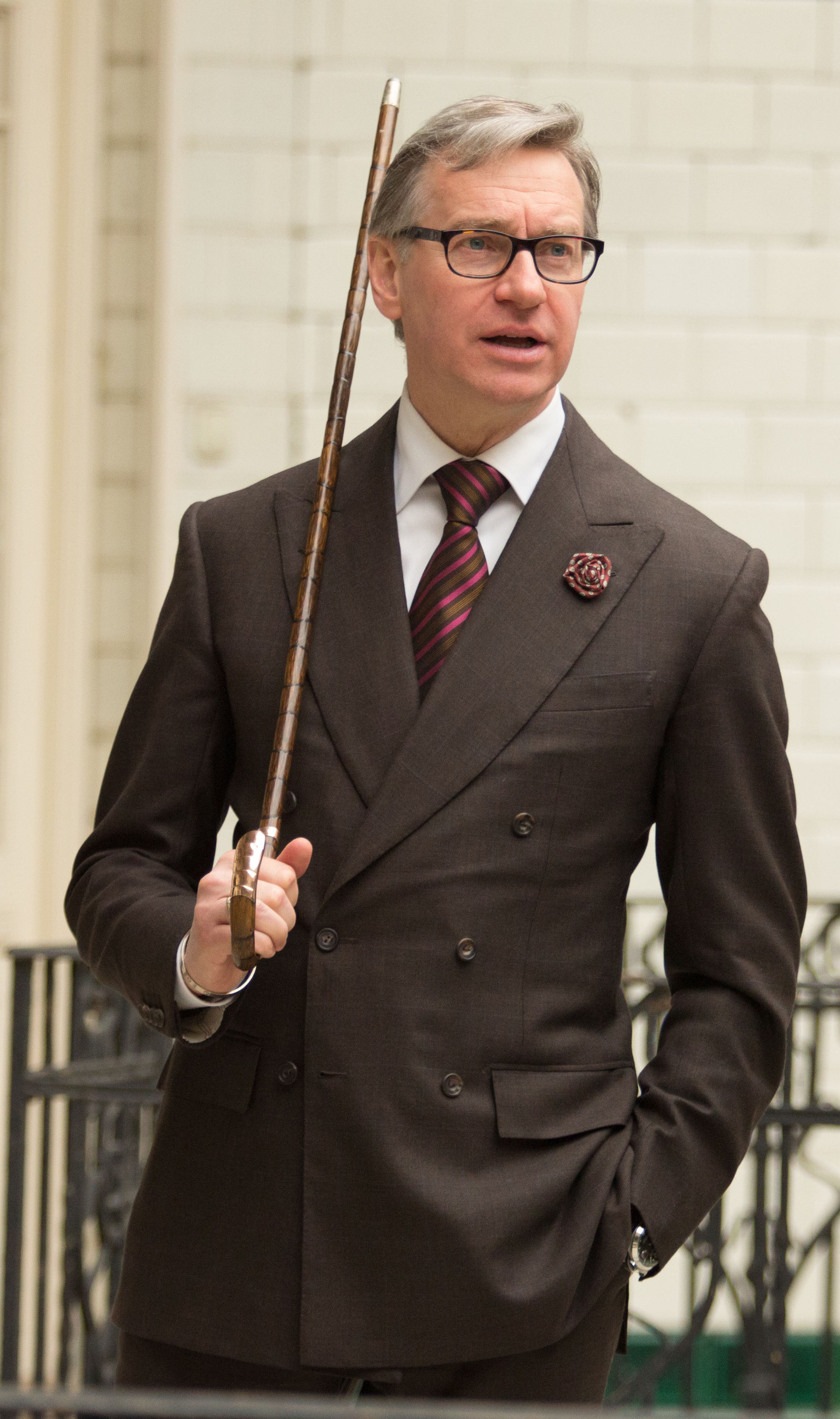
So he embraced his love for sharp fashion with a vengeance — he estimates that he currently owns upwards of 70 suits, with 20 in heavy rotation. “I feel like an adult [wearing them],” Feig said while, yes, wearing an impeccably tailored navy three-piece suit and black monk-strap shoes. “I actually feel really good about myself. More than I did than in anything else.” Feig has even come to demarcate his professional life between before when he started wearing suits, and after. “To me, dressing down was associated with the worst parts of my career,” he said.
It is a place to which Feig never wants to return, and the possibility of that happening remains a constant in his mind. So even after Apatow called Feig out of the blue in 2010 about directing Bridesmaids; even after Feig did a small polish on a part of Wiig and co-writer Annie Mumolo's script, causing Apatow to exclaim, "You're it! You're the voice!"; even after Bridesmaids' destroyed the audience at its SXSW debut; even after the movie became a cultural phenomenon; even after it earned two rare Oscar nominations for a comedy (for the screenplay, and for McCarthy's supporting performance); even after all the affirmation that, finally, audiences were in tune with Feig's comedic sensibility, he still worried, almost habitually, about whether his intuition about what to do next was, in fact, correct.
"Once you've been in movie jail, all you can think of is like, Fuck, they're going to send me back. I'm going to blow it," he said. Before Bridesmaids had opened, Feig had committed to directing the third Bridget Jones film, on the principle that it was the smart play to have a movie already in the works lest Bridesmaids fall short of expectations. He and his wife even moved to London, staying in posh hotels and apartments and relishing the city's night life. But during the day, Feig became tormented that he had made the wrong choice.
"It just started going off the rails," he said. "I was having problems with the writer, Helen Fielding, who's great. I love her. But we weren't seeing eye to eye on anything. I just got obsessed, because of the whole movie jail thing, of, like, if it's not great, I'm going right back in [to movie jail], and especially if I fuck up an established brand."
After working on the project for five months, Feig left it behind and returned to L.A., diving right back into writing the script for the romantic comedy Dumb Jock, a Universal movie that had McCarthy and Jon Hamm attached. He loved the finished script. The studio did too. But Hamm and McCarthy didn't, and the film quickly died.
At that point, it had been a year since Bridesmaids broke Hollywood in the best way possible and Feig had nothing going on. "I was like, I'm going to have that thing of, Oh, he got lucky. Or, since Judd's name is so big, Oh, it must have all been Judd."
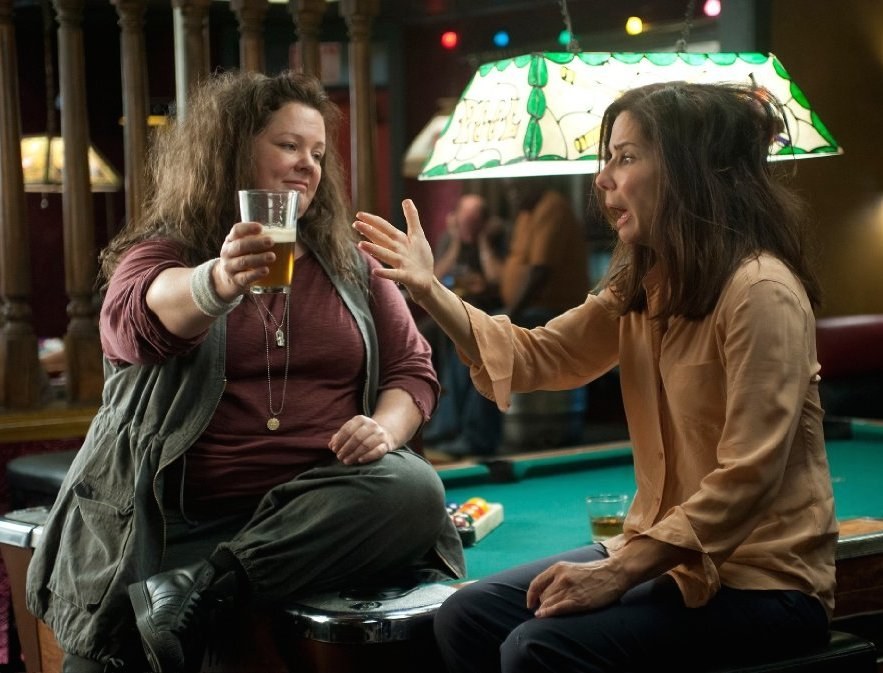
Feig did, in fact, get lucky: A script called The Untitled Female Buddy Cop Comedy was sitting on his counter. Eventually, it was named The Heat. And with it, Feig officially became a successful Hollywood director.
He signed a first look deal with Fox, which snatched up Feig's script for Spy before The Heat had even opened (to $39.1 million at the box office). He fended off offers to direct a Ghostbusters sequel, until he realized he could reboot the franchise with women. He's producing The Peanuts Movie, Blue Sky Studios' ambitious feature adaptation of Charles Schultz's indelible comic strip. He's developing an original movie musical that he is "desperate" to direct. And this year, he returned to TV, executive producing the Yahoo sci-fi comedy Other Space.
With so much on his docket already, does Feig want to become a brand, like Apatow? "Yeah, I do," he said quickly. But with so much experience with the vicissitudes of a career in comedy, Feig is also convinced that all his hard-earned clout in Hollywood and credibility with audiences could vanish just as quickly as his career exploded after that late night in Austin in 2011.
"Bridesmaids surprised everybody," he said, at once proud and nervous, as he sipped his second martini. “I just hope that Spy does well. … We're in a great time for me, and have been for the last 10 years, quite frankly, comedy-wise. But I'm nervous because, literally over the weekend, the country's sense of humor can change. Where you feel like, Here it is folks! This kills! And it dies, and you're like, What the fuck?! That's the built-in danger of comedy. You can only do what you think is best, and then you just kind of hope we don't get caught in a vortex when something else comes in.”
With the interview over on that cautious note, Feig finished off his drink, stood up, and began with his small entourage to wend his way back out of the bar. But he didn’t get far. A woman clad in a bright green shirt, her neck festooned with plastic bead necklaces, walked right up to him — apparently, a man in a three-piece suit being interviewed in an Austin bar for over an hour is somewhat conspicuous, and she wanted to know who he was. Feig’s response was too quiet to hear, but based on the woman’s reaction, it probably involved the word “Bridesmaids.”
“Oh my gosh!” she said, her eyes going wide. “Ohhh myyy gawwwwssssh!” The woman began racing around the bar, grabbing other women wearing bright green shirts and plastic bead necklaces, telling them all that the director of Bridesmaids was there. And that’s when it became clear: This was a bachelorette party. And they, of course, had to take a picture.
After spending so much of his career at the margins of the industry, at times so far that he was barely a part of it, Feig has achieved the kind of success where his mere presence is enough to create a story these women will tell for years to come. As much as Feig may worry about it all going away, that is the kind of lasting impact that can be almost impossible to shake.
